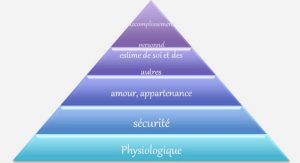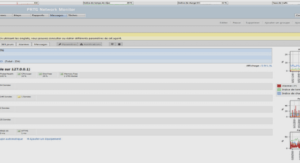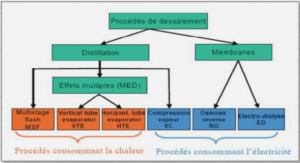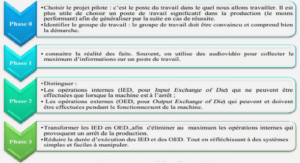(RE) READING the US WAR on GLOBAL
TERRORISM
Reading Democratic Idealism through the US war on terror
Democracy promotion has always been part and parcel of the US Foreign Policy since 1823 with the Monroe Doctrine. In the US war on global terror, it has got a specific place in the agenda of the policy thereof. Democratic principles, which the US governments fought for all along the US diplomatic history have been threatened by new geopolitical actors in 1979 and 2001, hence all the sense that should be given the US democratic stand through the war on terror. Deciphering such a democratic stand requires going back to the legacies and trying and seeing how they have been achieved through history. Democratic idealism was among the very early trends in the circumstance in which was born the American Foreign Policy. The US Foreign Policy history was a synthesis of the warnings of George Washington, in 1976, on the one hand, and the Monroe Doctrine in 1823, on the other hand. However, the exportation of democratic values would be in the forewords of the agendas of US Presidents. Thus, Woodrow Wilson succeeded, during World War I, in facilitating the birth to the new era of the American Foreign Policy: an idealist Foreign Policy in a new world order with institutions guaranteed by an inclusive organization, which would be the translation of the collective will and consciousness of mankind. Earlier before and even during the first term of Woodrow Wilson administration, democracy idealism was very central in the US Foreign Policy because the democracy was well unilaterally promoted as regards the US intervention in the crisis of Mexico with the violation of the treaty of Bogotá; or in the invasion of Panama Canal by Theodore Roosevelt with the violation of the sovereignty of Columbia. In the rest of Latin America, the United States used to intervene in such an intermittent way as they were assuming their regional supremacy and exporting their model. Somehow, this is what Noam Chomsky believes to a terrorist intervention of the US in those regions. In fact, the author lists the series of grievance related to democracy promotion in his deconstructive book Failed States, the Abuse of Power and The Assault on Democracy. 136 | P a g e One clear illustration is Washington terrorist war against Nicaragua in 1980s, an uncontroversial case for those who believe that the International Court of Justice and the UN Security Council—both of which condemned the United States—have some standing on such matters197 . Playing the role of the most powerful but also the most liberal nation in the American continent, the United States would act to build a cooperative institutional order between countries of the same continent. The first term of President Wilson is characteristic of interventions and interferences in the erection of foreign governments and the choice of leaders in Latin America very especially in the crisis of Mexico. The US felt responsible for the destiny of the people under the southern hemisphere of the American continent, preys of European hawks during a time of worldwide imperialism. Besides, in 1889, the Secretary of States, James Blaine proposed that the twenty one sovereign nations of the continent should ally within an organization that would have as a mission to arbitrate peacefully their conflicts and to reinforce their economic ties. It is on that behalf that was built, in 1890, the American States Organization. Thus, the World witnessed the first steps of the American Foreign Policy, a policy always so dear to the warnings and the principles of the founding fathers. That Foreign Policy was akin to the following of a way different from the external world‘s, but also to gather the different countries of the continent around the same codes of honor and same kinds of government familiar to that of the United States in order to favor political ties with them. The Latin American nations would be towed by the US to the path they cleared for them. They shaped their destiny in accordance with the United States‘. According to the latter, erecting democratic governments in the Latin America were the first conditions among many for the possible political relations with any nations in the subpart of the continent. Well aware of this, Woodrow Wilson was actively interested in the events, elections, and government changing in Latin America. The US Foreign Policy during this 197 Noam Chomsky, Op. Cit., p. 5. 137 | P a g e period, adopted such a unilateralist approach so much so that troops were sent to Mexico to hunt the Mexican rebellion‘s leader, Diaz, and to participate in the erection of a new government in supporting a candidate favorable to American democratic values, Venustiano Carranza. Later on, the governments of Herbert Hoover (1929-1933) and of Franklin Roosevelt would give up their right to intervene in the Latin America. In fact, the policy of good neighborhood established by President Roosevelt in 1930 contributed in the dissipating of most of the bad feelings created by the first interventions and by other unilateralist actions of the United States in the Latin America even though it did not succeed in hiding all of them. Despite the visible effort to sustain fair relations with other states, the United States cannot help acting unilaterally to better answer the need of its people, very especially the ones, which are relevant to vital and national security interests such as the War on global terrorism. Yet this approach is far more dysfunctional and counterproductive, especially in the context of the relations with Islam, than its Western proponents realize or are willing to admit, given their ideological inclinations, cultural predilections and life-style choices and preferences. Therefore, Soft Power contributes to globalization‘s discontents in relations with Islam. Radical Islamist and, more worrisome, non-violent mainstream traditionalist Muslims, perceive cultural Soft Power as a tool of Satan
PART TWO: CULTURAL AND POLITICAL NEXUS IN THE US APPROACH TO GLOBAL TERROR
The war on global terrorism is as much cultural as political when it is examined in a much thorough way and when the compartments of which are unearthed for a deep analysis. The behaviors of the anti-terrorist warriors remind the first Americans. The mode of operation of terrorists faced the strong and rigid power of the American government. Some aspects of the war are registered within the US National Style itself, and that is the reason why they drive out a culture, which hurts as much as it attracts. Cultural values and political principles for which US Foreign Politicians are fighting for and which they dare defending beyond the American borders are just the exportation of what Stanley Hoffmann has called the US National Style. In other words, Joseph Nye would call it Soft Power. Introduced in 1990 by the latter, and subsequently refined, the term « Soft Power » refers to the ability of a political entity to exercise a form of power, which alters the behavior and shapes the preferences of others not through compulsion, coercion or even inducement/payment, but through attraction/co-optation, leading to acquiescence. Rather than « command power », the workings of successful Soft Power in action are represented by attraction, admiration, cooptation, and emulation. The result is that the entity (individual, group, institution, or state) at the receiving end of Soft Power projection, whether the explicit intended target or a mere bystander, identifies its interests as identical to those of the entity from which Soft Power emanates220 . 220 Joseph M. Dondelinger, Op. Cit., pp. 44-85. 154 | P a g e Chapter 3: Contrast of Values and the Sense of Rivalry 155 | P a g e The amazing continuity of the great orientations which were drawn by the Pilgrim Fathers since the voyage of the Mayflower in 1620 is striking. Those strong feelings of moral superiority and that sense of responsibility and providential mission for mankind are the legacies of the puritans. They are still prevailing in the US National Style and therefore play a paramount role in the US Foreign Policy. They are permanently noticeable from the relationship to the link of notions such as Discourse, Power and Ideology within the broader issue of Islamist extremism and the US war on global terrorism. In fact, situating the first steps of the war on terrorism in the US Diplomatic History imposes us some requirements among which unearthing crucial elements in the context of the Iran revolution as the angular stone. In 1979, Ayatollah Khomeini seized US citizens as hostages, in the name of an Islamic-coded principle named fatwa. The bras de fer that stemmed from that event between Teheran and Washington caused a never-happened-before diplomatic crisis. This is resultant from the involving of the US in World affairs since the end of the Second World War and the beginning of the Cold War and its will to control the zones where communism were spreading its influence. Besides, the war against radical Islam began in 1979 when Imam Khomeini of Iran seized American Hostages. President Carter did not get second term because of his inability to deal with that crisis successfully. His successor, the President Ronald Reagan, came and began his Star War in which he drew up his famous ―Empire of Evil‖. The latter implied a distinction between authoritarian and totalitarian regimes, on the one hand, and America and the ―Civilized World‖ on the other. He then sustained the providential mission of the United States and promoted the great principles of the Declaration of Independence. But, he remained very realist when he refused any alliance but the one that would help thwarting the danger of communism. He then became idealist when he re-asserted the metaphor of the City shining upon a hill and then identified the communist foes as ―the Empire of Evil‖. The Evil rhetoric resonated the speech of George W. Bush 43rd when he divided the world into two parts, then opposed the U.S., the best model of democracy, to the ―axis of 156 | P a g e evil‖ 221. President Bush said that the US would suffer from its own values and principles, which the foes of liberty hate. He put: Americans are asking why they hate us. They hate what we see right here in this chamber, a democratically elected government. Their leaders are self-appointed. They hate our freedoms- our freedom of religion, our freedom of speech, our freedom to vote and assemble and disagree with each other. The US Exceptionalism and the Arab Pride The rhetoric of America as an exceptional nation is well shared by scholars of every generation. Besides, Alexis de Tocqueville theorized it in his best-seller, Democracy in America, 1831. He coined the term American Exceptionalism on accounts of its unique origins, national credo, historical evolution and distinctive political and religious institutions. It is on that bedrock that the Manifest Destiny, the doctrine behind the American Westward Movement, was built. In fact, the term Manifest Destiny was broken to the great public through an article signed by John L. O‘ Sullivan: The Democratic Review, in 1845. It was the ―Manifest Destiny of the United States to spread the continent allotted by the Providence for the free development of our yearly multiplying millions‖. 223 These features have been evolving since then, but they are still prominent in the US National Style. The latter helps to make links between the first Americans and modern ones. The features have got less intense, though; however they have been still prevailing in the US Foreign Policy especially since the latest decade of the 21st century. It would have taken a new turn to better fit the new trend in international relation. It would have taken the form of discourse dedicated to a Foreign Policy mission. American Foreign Policy was born as a synthesis of, on the one hand, Washingtonian wisdom, so manifested in his Farewell Address224 , according to which the US should, in order to preserve its inviolate union, never stick their hands in the European games of alliances and counter-alliances; and, on the other hand, the Monroe Doctrine, in 1823, which advocated the non-intervention in extra-American affairs but the intervention in the affairs related to the American continent as much as the European interests were engaged. Yet, Woodrow Wilson succeeded, during World War I, in facilitating the birth to the new era of the American Foreign Policy: an idealist Foreign Policy in a new world order with institutions guaranteed by an inclusive organization, which would be the translation of the collective will and consciousness of mankind. The US Foreign Policy has always been influenced by the Democratic Idealism, which is deeply rooted in the US diplomatic history and paved away by the US 28th President since World War I. Besides, Ron Paul, an eminent American Foreign Policy scholar acknowledged this influence. According to Paul, in a debate, he took part in New Hampshire Debate at Meet the Press, in January 2012, ―America has been still running a Foreign Policy Woodrow Wilson [trying to make the world safe for democracy].‖ 225 The wilsonian democratic idealism was significant in the Great War especially when a surge of pacifist movements used to rally in favor of the immediate end of that lasting war. In fact, in order to create a political environment favorable to freedom and peace promotion, Woodrow Wilson, with the help of his closest advisor, Colonel House, by a slick propaganda campaign, would have convinced the chancellors of the old world, especially the European belligerents, to gather around the same codes of honor and international laws. The former professor of Princeton University aimed at realizing that big dream in creating a society of ―civilized nations‖ in order to end war and barbarism but also militarism in Europe and to create a liberal international order as it is theorized in his Fourteen Points Plan.226 However, Woodrow Wilson‘s influence on American Diplomatic History might be so great that people like Henry Kissinger, a swear opponent of wilsonian principles, rhetorician of the Real Politik, 227 did acknowledge it. According to Kissinger, the wilsonian democratic idealism consists of the bedrock of the US diplomatic history. Besides, the US Presidents usually invoke Liberal Democracy to legitimate their Foreign Policy actions meaning that Idealism is a theory well appreciated by every president of the US no matter which color he represents, Red or Blue.
PART ONE: THE US WAR ON TERROR AS A TWO-WAY STREAM POLICY |



